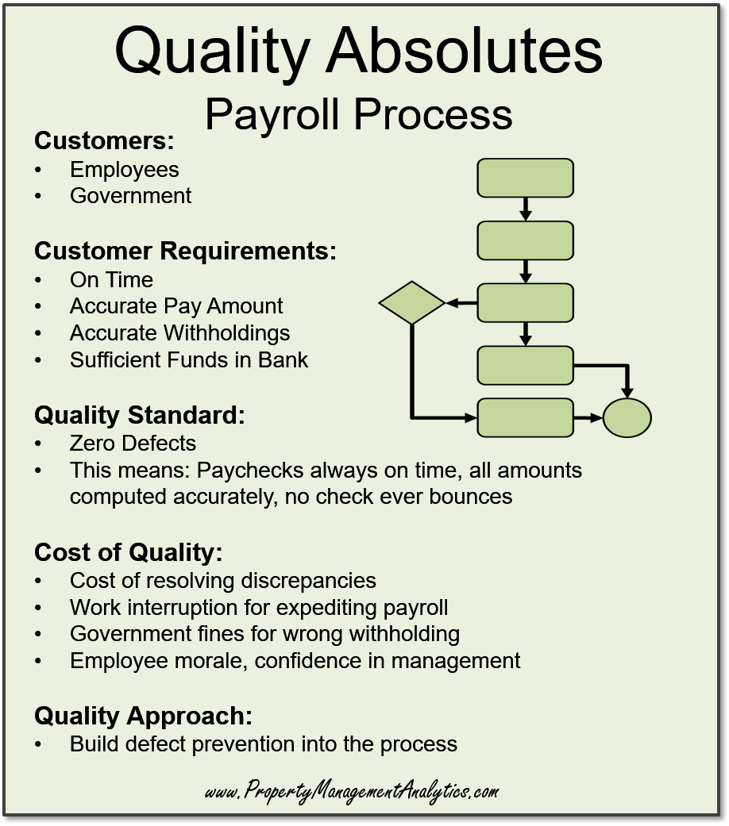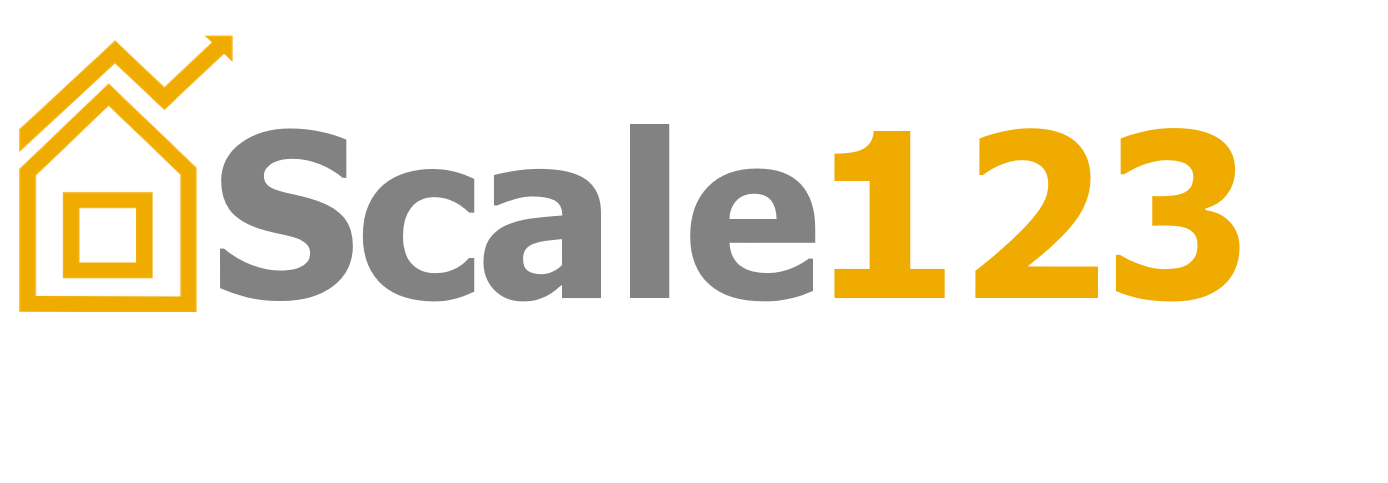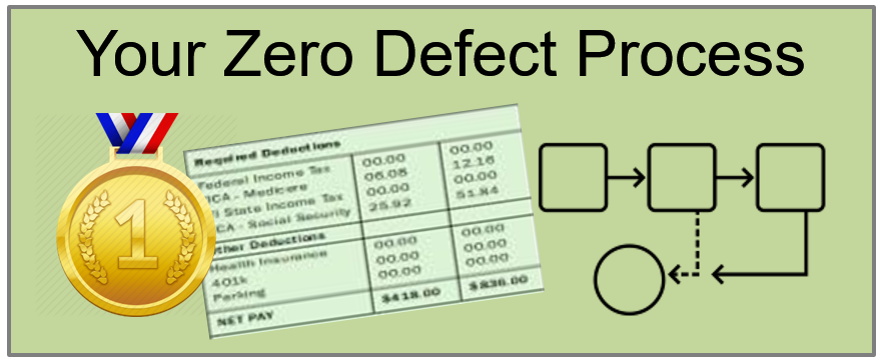When I first introduce the concept of zero defects to my clients, they think it is impossible and unrealistic. Then I say that they are already close to zero defects in at least one of their business processes, and this piques their curiosity. If you are a property management executive, you also have at least one business process that is close to zero defects: your company’s payroll process. In this post I will use the payroll process to highlight that Quality Management concepts are commonplace. You’re already applying the principles of Quality Management in property management.
The Four Absolutes of Quality
In my last post (Zero Defects in Property Management) I listed Phililp Crosby’s “Four Absolutes of Quality.”
- Quality means conformance to requirements
- Quality comes from prevention
- The Quality performance standard is zero defects
- The Quality measurement is the price of non-conformance
Let’s illustrate these using the payroll process
Payroll: Your (Almost) Zero Defect Process
-
Quality means conformance to customers’ requirements.
- For payroll, you have at least three customers: your employee, the government, and your finance department.
- Their requirements are a) every paycheck must be on time, b) The pay and withholding amounts be computed accurately, and c) there must be sufficient funds in the bank to cover the paycheck
- When you meet these requirements, you have quality.
- When paychecks are late, or amounts are incorrect, or the paychecks bounce, then you have defects.
- Since most executives take the payroll process very seriously, defects are very rare.
-
Quality comes from prevention
- You don’t get quality by inspection. I bet you don’t have every paycheck examined and double-checked before it is issued to an employee.
- You have set up systems and procedures that prevent errors from being introduced into the payroll process.
- For example, one company found that allowing timecards to be submitted until an hour before checks were cut sometimes caused the checks to be delayed. So they enforced 24 hour cutoff. This is an example of a preventive measure for defects.
-
The Quality performance standard is zero defects
- You have zero tolerance for late paychecks, wrongly computed paychecks, and paychecks that bounce.
- You have made sure that those who play a role in issuing paychecks have the knowledge, training and the capacity to perform their tasks.
- Once you committed to zero defects in the payroll process, you might have had to change procedures, invest in training people, or outsource with a third party. What guided your actions is the performance standard of zero defects.
-
The Quality measurement is the price of non-conformance
- Height is measured in inches, weight is measured in pounds, and Quality is measured in the price you pay when you have defects.
- When you don’t conform to a requirement, you have a defect.
- The quality of the payroll process is not measured in terms of ratings such as “Good, Average or Bad.”
- You measure defects such as how many checks were late, or how many checks had the wrong amount, how much was the wrong amount, how many times withholdings were too low or too high.
- You can measure your quality in dollars:
- How much have you spent to rectify paycheck amounts?
- How much have you spent to expedite work to deliver paychecks after their due date?
- How much have you paid in government fines for incorrect withholding amounts?
- If you are quantifying the cost of these defects, you have a good understanding of the quality of your payroll process.
Quality Management in Property Management
While formal Quality Management techniques are not ingrained in property management today, everyday common sense and a focus on customer satisfaction is already in place. That’s the foundation of Quality Management. Hopefully I have taken the mystery out of the jargon, and given you ideas for managing quality in the property management business.



